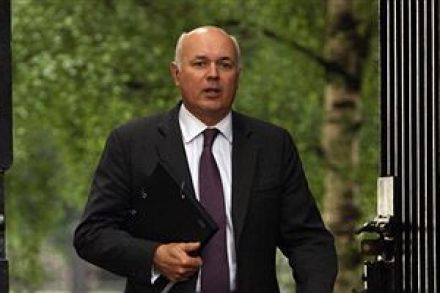IDS’ resignation would be a catastrophe
If Iain Duncan-Smith resigned from the government, the coalition would be in trouble. If Vince Cable is the coalition’s left tent peg, IDS is the right one: his departure would leave the coalition’s right side dangerously open to the elements. Which prompts me to oppose Ben Brogan’s blog saying that the coalition would not suffer much if IDS walked. If IDS left, the Cabinet would be dangerously unbalanced. There would, in these circumstances, be only two people in it who the Tory parliamentary party considers to be on the right, Liam Fox and Owen Patterson. The right, as the Liberal Democrats seem to appreciate, would in these circumstances demand far



















